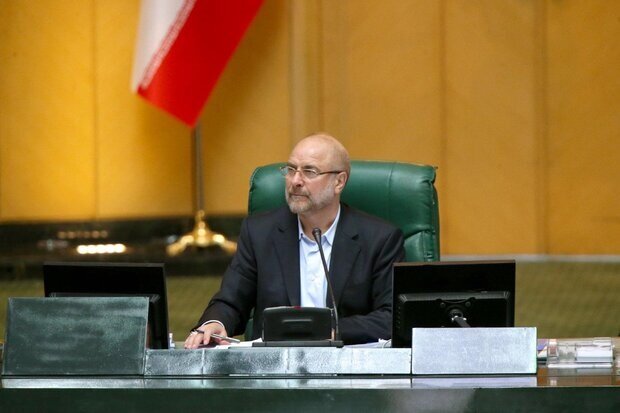Ghalibaf: We won’t let IAEA complete espionage circle of hostile countries

TEHRAN — The Islamic Republic and its parliament will not allow the International Atomic Energy Agency (IAEA) to pursue completing the circle of espionage of hostile countries, Parliament Speaker Mohammad Bagher Ghalibaf has warned.
“The International Atomic Energy Agency and the Board of Governors should know that the Islamic Republic and the Majlis representatives will not allow the Agency to be free of any restriction so that it does whatever it wants and seeks to complete the circle of espionage of hostile countries,” Ghalibaf said on Sunday, according to Mehr.
He said Iran expects the other sides to the nuclear agreement to fulfil their commitments under the deal, officially called the Joint Comprehensive Plan of Action (JCPOA).
“We will stand up to their excessive demands, and we hope that the Foreign Ministry will be able to perform their duties well,” the parliament speaker added.
The 35-member IAEA board of governors passed a resolution on June 19 demanding access to two old places under the allegation that nuclear work may have been done there.
France, Britain, and Germany, the three European parties to the 2015 nuclear deal, submitted the draft resolution to the IAEA board for approval.
Nine countries out 35 members to the IAEA board did not vote for the resolution. China and Russia voted against the resolution and Thailand, Mongolia, Niger, South Africa, India, Pakistan and the Republic of Azerbaijani abstained to vote.
Russian Foreign Ministry spokeswoman Maria Zakharova has rebuked the UK, France, and Germany for introducing the resolution, saying such measures are rooted in “destructive” measures adopted by the United States against the Iran nuclear deal.
Zakharova said last week that the European trio’s actions fueling tensions around Iran’s nuclear activities at the UN atomic watchdog contradicted their claims of commitment to the JCPOA.
Chinese Foreign Ministry spokesperson Zhao Lijian has also voiced his country’s opposition to the resolution, saying China does not approve of actions that escalate the situation.
“China supports the IAEA in playing its role in an objective, professional and neutral manner in verifying Iran's compliance with its safeguards obligations,” he said during a press conference last week. “We are against politicizing its work.”
“The IAEA explicitly states that the safeguards issue is neither urgent nor poses a proliferation risk,” Lijian explained, adding, “The Iranian side also expressed its clear wish to resolve issues through dialogue with the agency. Under such circumstances, China does not approve of actions that artificially exacerbate tensions and escalate the situation.”
MH/PA
Leave a Comment